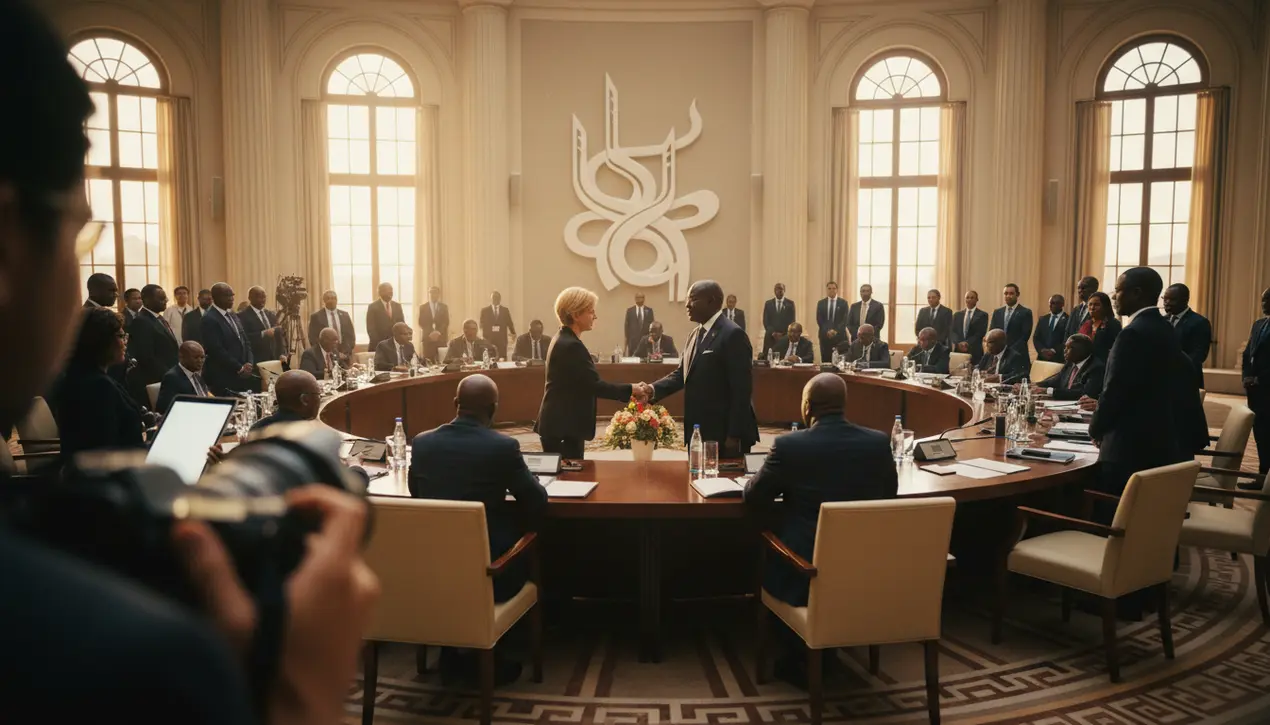
PoliticsdiplomacyMultilateral Summits
EU and African Union Leaders Strengthen Ties at Angola Summit
RO
Robert Hayes
6 hours ago7 min read2 comments
In the grand halls of Luanda, a city whose own history is a testament to the complex tapestry of African liberation and post-colonial realignment, leaders from the European Union and the African Union convened for a summit that signals a profound, if cautious, recalibration of transcontinental relations. This gathering, far from a mere diplomatic formality, represents a strategic pivot, a deliberate effort to forge a partnership that moves beyond the donor-recipient dynamic that has so often characterized Europe's engagement with Africa—a relationship historically fraught with the legacies of empire, structural adjustment, and a paternalism that has long soured mutual trust.The palpable, if measured, optimism in the room was significantly buoyed by the reported progress on the EU’s Global Gateway initiative, a sprawling €300 billion investment blueprint ostensibly designed to rival other global infrastructure endeavors, most notably China's Belt and Road Initiative, by promising ‘sustainable and trusted’ connections in digital, energy, and transport sectors. Yet, for the seasoned political analyst, this development cannot be viewed in isolation.It is the latest move in a high-stakes geopolitical chessboard where the African continent is no longer a passive prize but an increasingly assertive player with multiple suitors, from Beijing’s checkbook diplomacy to Moscow’s mercenary-laced security deals and Washington’s own renewed overtures. The very choice of Angola as host is deeply symbolic; a nation once ravaged by a civil war that served as a proxy conflict during the Cold War is now a stage for a new kind of economic and ideological contestation.The real substance, however, lies not in the memoranda of understanding signed but in the implementation. Will the Global Gateway truly deliver on its promise of green energy and digital transformation without the debt-trap accusations that have dogged its competitors? Can the EU, with its often cumbersome bureaucracy and competing internal priorities, muster the agility and long-term commitment required? And crucially, will African leaders successfully leverage this European anxiety to secure deals that are truly on their terms—deals that build local industrial capacity rather than merely extract resources? The shadow of the fraught negotiations over the EU's Carbon Border Adjustment Mechanism, perceived by many African nations as a protectionist tariff that could stifle their industrial development, looms large over these cordial discussions.This summit, therefore, is less a culmination and more an opening gambit. It echoes the spirit of post-World War II reconstruction plans, but with a critical difference: the Marshall Plan was an American imposition on a shattered Europe, whereas today’s framework must be a negotiation among sovereign, if unequal, partners. The success of this renewed alliance will be measured not by the funds pledged in Luanda, but by the tangible factories built, the jobs created, and the bridges of mutual respect that are finally, and permanently, established across the Mediterranean.
#featured
#EU
#African Union
#summit
#multilateralism
#Global Gateway
#investment
#Angola
Stay Informed. Act Smarter.
Get weekly highlights, major headlines, and expert insights — then put your knowledge to work in our live prediction markets.
Related News
Comments
Loading comments...
© 2025 Outpoll Service LTD. All rights reserved.